Sixth Form Subjects

History
| Exam Board | AQA | Ask us a question | |
| Course Duration | Two Year, Full-Time | Apply | |
| Intake Date | September |
Course Overview
Our History A Level gives an opportunity to learn about the world we are living in and how its political, social and economic structures were created. It will enable students to learn about the significance of events, people, issues and societies in the Modern World. They will learn about how and why our society has changed and about the related theories of historians. Students get a chance to understand the language used to discuss ideas, to develop an understanding of how the past has been interpreted and, importantly, to express their own ideas confidently and effectively.
Course Content and Assessment
AQA – A Level History
1C: The Tudors: 1485-1603
This option allows students to study in breadth issues of change, continuity, cause and consequence in this period through the following key questions:
- How effectively did the Tudors restore and develop the powers of the monarchy?
- In what ways and how effectively was England governed during this period?
- How did relations with foreign powers change, and how was the succession secured?
- How did English society and economy change, and with what effects?
- How far did intellectual and religious ideas change and develop, and with what effects?
- How important was the role of key individuals and groups, and how were they affected by developments?
Assessed
- written exam: 2 hours 30 minutes
- three questions (one compulsory)
- 80 marks
- 40% of A-level
2Q The American Dream: reality and illusion, 1945–1980
This option provides for a study in depth of the challenges faced by the USA at home and abroad as it emerged from the Second World War as a Superpower. For many Americans, post-war prosperity realised
the ‘American dream’ but the prosperity was not shared by all and significant problems at home and abroad challenged the extent to which the ‘American dream’ was a reality. It explores concepts and ideas such as American identity at home and abroad, anti-communism, social equality, ethnic identities and federal versus states’ rights. It also encourages students to reflect on the nature of democracy in a pluralist society, political protest and the power of the media.
Assessed
- written exam: 2 hours 30 minutes
- three questions (one compulsory)
- 80 marks
- 40% of A-level
Component 3: Historical Investigation
This is a personal study of a period of 100 years of History, It must not duplicate content of options chosen in Components 1 and 2.
- Assessment a 3000-3500 word essay
- 40 marks
- 20% of A level
- Marked by teacher and moderated by AQA.
Learning Methods
The course is designed to stimulate interest and help to contribute to the development of a thinking, responsible individual. Learning methods are varied and challenging, with a premium placed on the development of analytical skills and effective written communication skills. There is a good deal of debate involved, and the course needs informed discussion, which requires considerable reading and personal research.
Future Pathways
History trains people to enter all walks of life. It is perhaps easier to suggest that all career paths are open, but particularly those requiring some understanding of people, for instance: Law, Journalism, Politics, Personnel Management, Social Work, Education and Training.
 POSSIBLE Careeer Pathways
POSSIBLE Careeer Pathways
History students progress to higher education courses in:
1. Secondary education teaching professionals
2. Marketing associate professionals
3. Other administrative occupations
4. Human resources and industrial relations officers
5. Public relations professionals
6. Business and related research professionals
7. National government administrative occupations
8. Social and humanities scientists
9. Sports and leisure assistants
10. Business, research and administrative professionals
Entry Requirements
A grade 6 or above at GCSE History and a grade 5 in English Language/ English Literature.
Student Testimonial
Testimonial in the pipeline
Other courses of interest
- Creative Digital Media
- Psychology
- English Language





